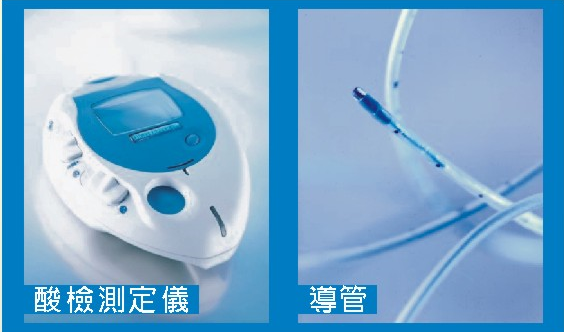:::
Gastroesophageal reflux disease (GERD) is a common esophageal disorder, typically manifesting with symptoms such as heartburn, painful swallowing, nocturnal cough, asthma, and, in severe cases, an inability to lie down and fall asleep. The primary cause of GERD is a malfunction in the mechanism that prevents stomach acid from regurgitating back into the esophagus at the junction between the esophagus and the stomach. Gastric acid rushes up into the esophagus, causing damage to the esophageal mucosa. Because gastric juice itself is highly acidic, when it refluxes into the esophagus, it is referred to as GERD. The reasons for this mechanism malfunction may include abnormal lower esophageal sphincter contraction, hiatal hernia, and persistent high abdominal pressure.
Conventional treatment involves “open-heart” surgery performed under general anesthesia and with the assistance of a heart–lung machine. In addition to the need for chest tube insertion, the patient must remain under observation in the intensive care unit for 3 to 5 days after the surgery. The patient is not only required to change the wound dressing daily and endure the wound pain but also ends up with a scar of at least 10 cm in length on the front of their chest.
Conventionally, the diagnosis of GERD primarily relies on gastroscopy. However, the diagnostic accuracy of gastroscopy is lower than that of 24-hour pH monitoring. Therefore, some GERD patients may still exhibit normal results after undergoing gastroscopy. In such cases, the “esophageal function test” can be used to accurately assess whether the patient’s esophageal swallowing function and lower esophageal sphincter pressure are normal, and “pH monitoring” can be used to accurately analyze whether there is acid reflux in the stomach.
The advantages of 24-hour pH monitoring are that the pH levels at the specific location can be continuously monitored at any time through a small pipeline, without affecting the patient’s daily life and diet. This method directly measures the time of exposure of the esophagus to stomach acid, establishing a gold standard and providing objective and scientific evidence. It not only assesses the effectiveness of medication but also analyzes the correlation between pH value and disease symptoms. Additionally, if the patients has a sensitive constitution, their esophagus may remain sensitive due to long-term damage even if they no longer experience gastroesophageal reflux. Through examinations, it can be determined whether the patient belongs to this category, and they can receive appropriate treatment.
If you have any questions regarding to “24-hour Esophageal pH Monitoring”, make an appointment with Thoracic Surgery to get a comprehensive evaluation and treatment plans
Thoracic Surgery
Chief of Thoracic Surgery Dr. Yung-Wei Tung


Outpatient Schedule
Conventional treatment involves “open-heart” surgery performed under general anesthesia and with the assistance of a heart–lung machine. In addition to the need for chest tube insertion, the patient must remain under observation in the intensive care unit for 3 to 5 days after the surgery. The patient is not only required to change the wound dressing daily and endure the wound pain but also ends up with a scar of at least 10 cm in length on the front of their chest.
Conventionally, the diagnosis of GERD primarily relies on gastroscopy. However, the diagnostic accuracy of gastroscopy is lower than that of 24-hour pH monitoring. Therefore, some GERD patients may still exhibit normal results after undergoing gastroscopy. In such cases, the “esophageal function test” can be used to accurately assess whether the patient’s esophageal swallowing function and lower esophageal sphincter pressure are normal, and “pH monitoring” can be used to accurately analyze whether there is acid reflux in the stomach.
The advantages of 24-hour pH monitoring are that the pH levels at the specific location can be continuously monitored at any time through a small pipeline, without affecting the patient’s daily life and diet. This method directly measures the time of exposure of the esophagus to stomach acid, establishing a gold standard and providing objective and scientific evidence. It not only assesses the effectiveness of medication but also analyzes the correlation between pH value and disease symptoms. Additionally, if the patients has a sensitive constitution, their esophagus may remain sensitive due to long-term damage even if they no longer experience gastroesophageal reflux. Through examinations, it can be determined whether the patient belongs to this category, and they can receive appropriate treatment.
 |
|
| 【pH meter】 | 【Catheter】 |
If you have any questions regarding to “24-hour Esophageal pH Monitoring”, make an appointment with Thoracic Surgery to get a comprehensive evaluation and treatment plans
Thoracic Surgery
Chief of Thoracic Surgery Dr. Yung-Wei Tung

- Areas of expertise:
- Esophageal cancer, lung cancer, minimally invasive thoracoscopic surgery, empyema, hemopneumothorax, mediastinal surgery, diaphragm surgery, tracheal surgery, thoracic trauma.
- Specialty certifications:
- General Surgeon, Thoracic & Cardiovascular Surgeon, Thoracic & Critical Care Specialist, Critical Care Specialist

- Areas of expertise:
- Minimally invasive thoracoscopic surgery, lung cancer, mediastinal tumor, pneumothorax, empyema, thoracic deformities, thoracic trauma.
- Specialty certifications:
- General Surgeon, Thoracic & Cardiovascular Surgeon, Thoracic & Critical Care Specialist
Outpatient Schedule
| Time Slot | Monday | Tuesday | Wednesday | Thursday | Friday |
|---|---|---|---|---|---|
| Morning | Dr. Kai-Wei Chang 【B365】 |
Dr. Yung-Wei Tung 【B363】 |
|||
| Afternoon | Dr. Yung-Wei Tung 【B363】 |
Dr. Kai-Wei Chang 【B363】 |
|||
| Evening | Dr. Kai-Wei Chang 【B363】 |


